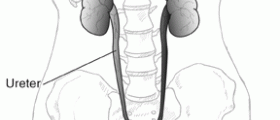
Red blood cells help us transport oxygen around our body. If there is a low red blood cell count in a particular individual, this can cause problems. Such a condition is known as anemia. The condition can lead to heart problems and reduced function in the tissues and organs. Causes
Those who suffer from kidney disease often suffer from anemia as well. This is as a result of a low level of EPO production in those with kidney disease. Anemia can also be caused by blood loss, either through low iron and folic acid levels, or as a result of hemodialysis treatment. Some anemic patients may suffer from a deficiency of vitamin B12. Sickle cell disease, aluminium poisoning and inflammatory problems are other potential causes of anemia.
Anemia can develop in the early stages of kidney disease. A decrease in kidney function is known as chronic renal insufficiency. As kidney failure worsens, so too will anemia. End stage kidney failure occurs when kidney function is reduced to about ten percent. Most who are at this stage of kidney failure suffer from anemia.
Examination
To begin examining a potential anemia sufferer, a complete blood count will be performed. This will measure the percentage of red blood cells in the body, as well as the amount of hemoglobin the blood contains. The test also measures ferritin and transferrin levels, which are used to indicate the amount of iron in the body. Creatinine levels will also be measured. If the patient has more than fifty per cent of hematocrit, it is probable that the cause of the anemia is decreased production of EPO. It is advised that detailed evaluation of anemia is performed if the hematocrit level is below 37 percent, or 33 percent in women of child bearing age.
Treatment
If low EPO production is thought to be the cause, then it is possible to treat this condition by the injection of manufactured EPO into the body. This injection is usually performed two or three times per week. Those undergoing hemodialysis may receive the substance intravenously. However, care needs to be taken not to raise the hemoglobin level too much, as this can lead to reduced heart function. The recommended target for hemoglobin levels is between 10 and 12 grams per deciliter. Sometimes, iron supplements will also be necessary for those suffering from anemia. Supplements may take the form of a pill or an intravenous drip.

















Your thoughts on this
Loading...